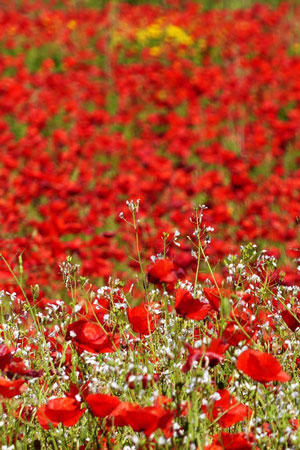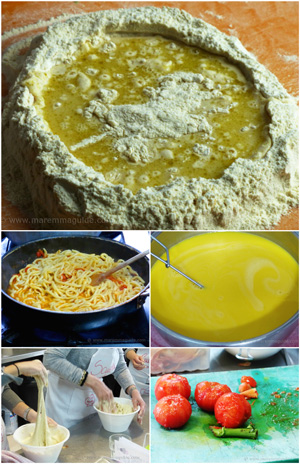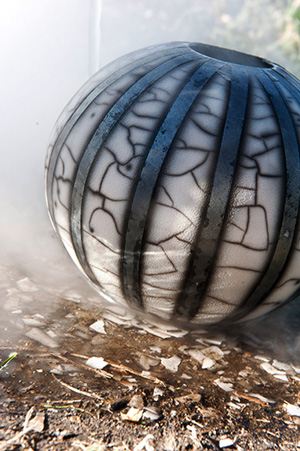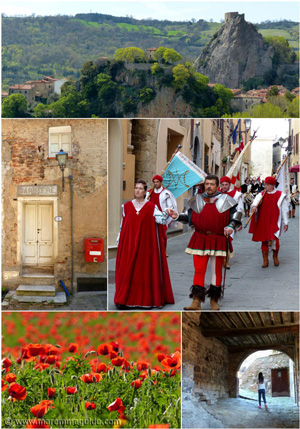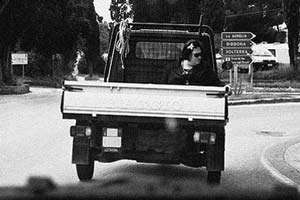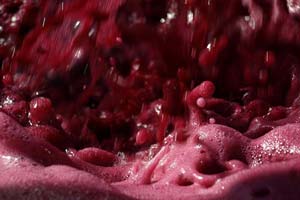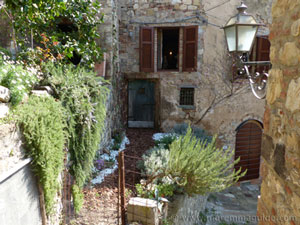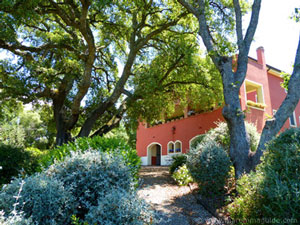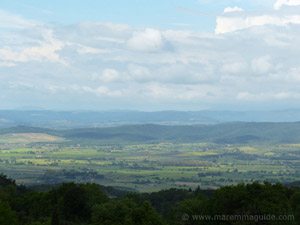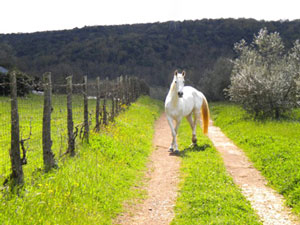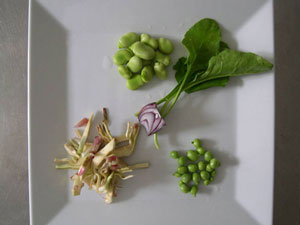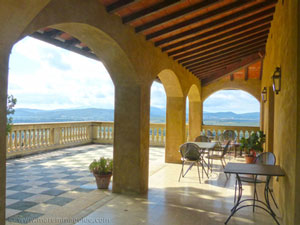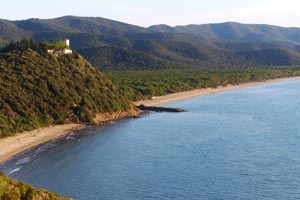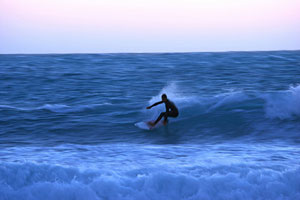The Rocca Aldobrandesca in Capalbio
a tale of trembles in the tower
The Rocca Aldobrandesca in Capalbio: kids will love its tower, but mum might need a camomile tea after!
You'll glimpse the "Torrione" - tower - of the "Castello di Capalbio" in the centre of town above the rooftops as you walk around the ancient walls. But it isn't until you wend your way into the Piazza della Rocca or the Piazza della Chiesa (the two run into each other) alongside, that you will feel its full imposing presence.
But that is nothing compared to the adrenalin rush, the frozen leg muscles, and the sweaty palms you will feel from climbing to its top. For it and the rest of the castle are open to the public and so climb it you must!
 The Torrione of the Castello di Capalbio: view from the Piazza della Chiesa
The Torrione of the Castello di Capalbio: view from the Piazza della Chiesa
The Castello di Capalbio: a little bit of a lot of history
Built in the early middle ages on the highest point in town, with a square and buttressed scarp base, the Torrione is the oldest part of both the castle and Capalbio.
The earliest surviving records to mention the "Castello di Capalbio" (castle) are those dated the year 805, which tell of it being part of a donation made by Charlemagne - King of the Franks, King of Italy and the first Holy Roman Emperor - to the Abbazia dei SS. Anastasio e Vincenzo alle tre Fontane di Roma (the Abbey of Saints Anastasio and Vincenzo of the Three Fountains of Rome).
Next mention is in the year 1161, in a privilege issued by Pope Alessandro III confirming the Abbazia delle Tre Fontane's properties within the territory of Tuscany, including the Castello di Capalbio.
In the 11th century the Abbey conceded the Rocca into the hands of the powerful Aldobrandeschi family who had been ruling much of Maremma from the time they arrived here in the 9th century. They immediately set about enlarging and reinforcing the Rocca and building Capalbio's first enclosing "cinta muraria", double walls. For Capalbio has two. The second circle came later.
The rest of Capalbio's change of hands, fortune and misfortunes - including Spanish dominion - you can find in the page about the town via the link at the bottom of this one.
Inside the Rocca Aldobrandesca castle
The cortile on the ground floor with its well (under which lies a cistern).

Looking up.

The Palazzo Collacchioni
The eclectic neo-Renaissance style Palazzo Collacchioni addition to the Rocca Aldobrandesca was built in the first decade of the 19th century by the then owner, Senator Giovanni Battista Collacchioni of San Sepolcro.
The recent restoration by the Comune of Capalbio has revealed some of the original decorations.
To be honest, the rooms are lovely to wander around but there aren't any display cabinets with things in to see or read about, so once the little ones amongst you have run in and out of them a couple of time, there isn't anything else to keep them amused. But it is for the tower that you buy the ticket ad where the memorable "fun" begins.
There are two large rooms on the first floor; the "Puccini' and the Caccia"
The "sala Puccini"
The "sala Puccini" takes its name from its fortepiano. A "fortepiano number 775", made by Conrad Graf in 1823 (restored in 1994), and played by Giacomo Puccini during his frequent stays in a nearby tower, the Torre della Tagliata.



The "sala Caccia"

The way up the Rocca's "Torrione" - tower
If you don't have a fear of heights, then please feel free to skip this part as I'm sure it just won't resonate with you. But I do!
You'll be looking through the grills between the towers Guelph "merli" battlements when you are up there!

First-up, I am a brave girl - fear of heights and all - for whenever we (my husband and my daughter and I) are out and about and we find a tower or "duomo" (cathedral) roof open to visitors, we always go up. In the same order. For whilst Sophia will practically gallop on up the ladder steps and narrow staircases, I will take my time in the middle with Fabio behind me giving me the reassurance I need should I wobble! And then on the way down - worse than going up - he is in front to save me should I slip! I know, completely irrational, but there it is.
And I am equally brave when I am out on my own and venture up medieval towers - how could I not - unless they are very dark, dingy and don't look like a safe place for a girl to be on her own (as was the case at Montenero in Val d'Orcia).
The first steps up leaving the Palazzo Collacchioni on the second floor are fine: I can handle solid stone ones any day!

TIP If your little one needs to use the bathroom - it happens even in medieval towers - the castle bathroom is on your right just before that door.
The next ones are single file, but aren't too bad even though I can start to see through the steps to below, but it isn't that high yet and the railing - why oh why do they always - finishes before the steps do.

The fresco they discovered
Which brings you into the second floor room where, during recent restorations, a pale fresco was found. You can just about see it to the left of the window.
It is dated around the end of the 15th century and is of the Madonna and child surrounded by saints. (I'm sorry that I didn't take a better photo - I will next time - but I was contemplating those stairs.)

Then it is up the two sides of the tower walls - wider and passable steps this time to the next floor - now a platform with this view down.

And then its single file again. And the most difficult part of all. Another narrow flight of steps that takes you out into the light and onto the tower roof.

That is, if you can open the door out.
The door out - feeling like a mole emerging into the light
When you purchase your castle entrance ticket you will be told that you will find the door at the top closed, but to open it and close it again behind you.
To be honest I wasn't sure what door the member of staff was referring to, but I assumed it to be the one to the tower and was right. But I have to say I expected a "door" in the sense of a wooden one or something.
On reaching the top of the final flight of stairs, noting prepared me to find three women on the roof looking down at me through a heavy glass and wrought iron window asking if I could push the thing hard as they wanted to leave but couldn't open it from the outside.
Of course I said yes! But then the adrenaline really started to pump around my blood stream for to do so I had to balance my myself on steep wooden steps that my big feet don't fit on - trying not to look down gaps between them - with nothing to hold onto. It took two hands and all my force and nothing moved. By which time my palms were sticky. And then it did. They grabbed the underside of the window and pulled. And I inelegantly emerged like a mole from the dark beneath.
At which point they talked about telling the Comune (local Authority) that a handle on the outside is needed and together we tried to pill open the door to its maximum height with a view to seeing if it would stay open on its own. It did
Then they said goodbye and left telling me that access to the top isn't usually permitted on windy days like today. And it was very windy. I was on my own.

And on its own, that door started to close...
The view down over Capalbio
The view of Capalbio's rooftops, with the cortile of the Rocca Aldobrandesca on your left and the church, the Chiesa di San Nicola, on the right.

The view over the wall towards Maremma's Costa d"argento (Silver Coast) and Monte Argentario.

And inland over Maremma's "colline" (hills).

The video
Getting down
Well, when the roof door had closed halfway I decided that enough was enough; I had been brave enough for one day! And opened it fully again to make my way down to earth.
Just as at the final part of going up the tower there is nothing to hold onto, so there is nothing to to hold onto to when you start your descent. And you have to manage that door. And close it behind you too.
It isn't that the Torrione of this Rocca is any worse than others, in fact, sat here now recalling all of the others that I have been up, I would say it is pretty easy going. But it was the glass door that did it for me. The adrenalin from the fear of being left on that roof and then having to manoeuvre a re-entry with feet that are bigger than the steps, and being taller than the average bent over and with nothing to hold onto all the while my eyes could see nothing but the chasm down between the gaps in those steps!
By the time I had gotten down the tower, the muscles in my legs had frozen stiff and I could hardly descend the wide stone flights of stairs of the two floors of the Palazzo.
And the lovely thing is that when I arrived back in Piazza della Chiesa, I came across those three ladies - locals - who had hovered around make sure I had gotten down OK.
I know that when I return to take Sophia up she will give me one of her looks which says mum what was all the fuss about. Oh to be young and fearless!
Castle opening times and tickets
The castle is open on Saturday and Sunday and on holiday days from 10:00 to 13:00 and from 15:00 to 18:00. Last entry is 30 minutes before closing time.
Tickets cost Euro 1,00 for residents of Capalbio, Euro 2,00 for non-residents. Free entrance for children under the age of 12 years and people over the age of 65 years.
Te. +39 0564 897743 or 897745.
Email: ufficioturisticocapalbio@etruriawifi.net
Calming nerves with camomile in Capalbio
Take a walk around the walls and explore the streets and alleyways of Capalbio with me. And find out about a lovely cafe in which to drink camomile tea (or a glass of wine...).

Explore some more...
